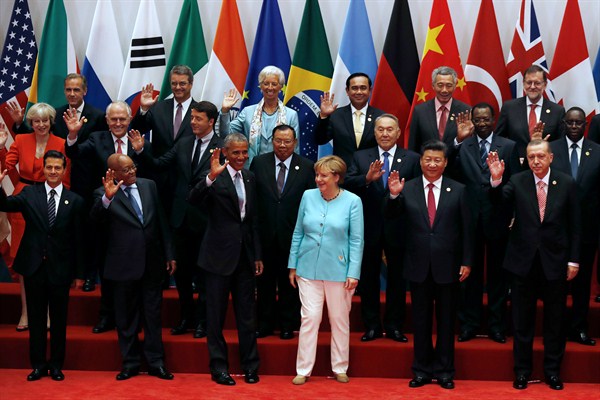Classic ghost stories often begin with the discovery of a mysterious manuscript in an ancient mansion. The hero turns up some yellowing necromantic texts in the dusty library, reads too much of it out loud, and before you know it the undead are all over the place, rattling their chains and spreading bloodcurdling panic.
Columns about foreign policy tend to have more prosaic origins. But last week, I found myself in a stately 16th-century home looking at a strange text that summoned up the ghosts of old debates about multilateral institutions. These ghosts might feel awfully distant, but they still haunt discussions of international cooperation.
The stately home was Wilton Park, a fine old place south of London where diplomats and policy wonks often meet to discuss global problems. On this occasion, I was participating in a conference on “the future of a liberal international order.” We talked about everything from peacekeeping to big data, but the core question was if and how international institutions can survive the current era of power shifts and political turbulence. Or, as the program asked, “Is the rules-based system international system set to unravel?”

